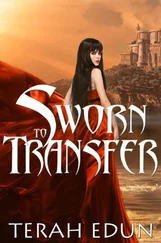'At the last meeting of the Althing, Thorir of Gard, the father of those lads who died in the fire in Norway, brought forward a new complaint against Grettir. He accused him of murdering his sons in a deliberate act. He was very persuasive and provided complete details of the outrage. He contended that the deed was so foul that Grettir should be declared skogarmadur.'
The word skogarmadur dismayed me. In Iceland it is never used in jest. It means 'a forest man', and describes someone found guilty of a crime so repugnant that the offender is condemned to live outside civilised society for ever. It means full outlawry and banishment for life. If the annual lawgiving assembly of the Icelanders, the Althing, passes such a sentence, there can be neither an appeal nor a pardon.
'No one at the Althing wanted to convict Grettir of such a heinous crime without hearing his side of the affair,' Snorri went on, 'but there was no one to speak up for him, and Thorir was so vehement that in the end Grettir was made a full outlaw. Now there is nothing that can be done to reverse the verdict. You'd better go back and warn your friend Grettir that every man's hand is against him. He will be hunted down like vermin. Anyone who meets him is entitled to kill him, casually or deliberately. In addition, Thorir is offering a handsome reward to anyone who executes him.'
'But what about Grettir's family?' I asked 'Weren't they represented at the Althing? Why didn't they speak up for him?'
'Grettir's father died while his son was abroad. And the most competent of his brothers, Adi, whom everyone liked and would have listened to, was killed in that deadly feud which the Asmundarsons are pursuing with the faction led by Thorbjorn Oxenmight. And, Thorgils, you'd better be careful too. Don't let yourself get drawn into that feud because of your relationship with Grettir. Remember that the law states that anyone who helps or harbours a forest man is an accessory to his crime and therefore forfeits his own goods. My advice to you is to have as little as possible to do with Grettir in the future. Once you have delivered your message to him, put as much space as possible between yourself and your murderous friend. Go and build yourself a normal life. Why don't you settle down, get married, raise a family, find your place in a community?'
I was aghast. Grettir had come home believing that he was entitled to live a normal life. Instead he stood condemned in his absence of a crime which I was convinced he did not commit. The effect of such injustice on his already brooding character would be calamitous. He would find himself even further isolated from normal society.
I knew that his chances of survival were negligible. No forest man had ever lived to old age unless he fled abroad and never returned to Iceland. In effect I had lost my friend. It was as if he was already dead.
To my surprise Grettir was not in the least perturbed to hear that he been declared a skogarmadur. 'Cheer up, Thorgils,' he said. 'Don't look so glum. If they are going to hunt down and kill their outlaw, they'll have to catch me first. I have no intention of running away and I've friends and allies in Iceland who'll ignore the Althing's decision and give me food and a roof over my head when I need it. I'll just have to be careful when I call on my mother. I'll have to do that in secret. Then I'll see how matters turn out once people hear that Grettir the Strong is back.'
'I'll go with you,' I said.
'No you won't, my friend,' he replied. 'Snorri was wise in that regard. You really ought to try settling down. You are at the right age for marriage, and you should look around for a wife and perhaps start a family. If I need your help, then I'll call on you for it. In the meantime I can look after myself very adequately.'
The two of us were standing on the brow of a low hill overlooking the anchorage where 'The Clog' was riding at anchor. In contrast to the foul weather of our voyage from Norway, it was a warm and sunny day, almost spring-like. I had suggested to Grettir that we walk up there as I had important news to tell him in private. Grettir reached down to pluck a wisp of grass, and tossed it nonchalantly into the air as if he didn't have a care in the world. The breeze caught the blades of grass and carried them away. 'I like this country,' he said. 'It's my home, and no man will chase me away from it. I believe I can live off this land and it will take care of me.'
'You'll need more than just the ability to live off the land,' I said.
'There's a saying that goes "Bare is the back of the brother-less,"' Grettir answered. He was carrying the sword we had plundered from the barrow grave, and now he pulled it from its scabbard and used the point to carve out a long strip of turf. He did not cut the ends but left them attached to the ground. Then he picked up his spear — since the attack at the tavern he never went anywhere unless fully armed — and used it to prop up the strip of turf so that it formed an arch. 'Here, hold out your right hand,' he said to me. When I did so, he delicately drew the blade of his sword across the palm of my hand. It felt like the touch of a feather, yet the blood began to flow. He shifted the sword to his left hand, to make a similar cut on his right palm. He held out his hand, and our palms met and the blood mingled. Then we ducked under the arch of turf, straightening up as we emerged on the other side. 'Now we are fostbraedralag,' said Grettir. 'We are sworn brothers. It is a loyalty that cannot be sundered as long as either of us is alive.'
Looking back on that ceremony under the arch of turf, I realise that it was another of the defining moments of my adult life. I, who had never really known my mother and whose father had been aloof and distant, had found true kindred at last. Had my life been otherwise, perhaps I would have natural brothers and sisters or, in the manner of many Norse families, I would have been fostered out and gained an alternative family of foster-brothers and -sisters with whom I could have been close and intimate. But that never happened. Instead I had gained a sworn brother by a decision made between two adults and that made our bond even stronger.
"Well, sworn brother,' said Grettir with a mischievous glint in his eye, 'I've got my first request of you.'
'What's that?' I asked.
'I want you to help me steal a horse.'
So before the next daybreak Grettir and I dressed in dark clothes and crept to a meadow where he had seen a handsome black mare. Under cover of darkness, we managed to coax the mare away from the herd, far enough for Grettir to put a bridle on her, jump on her back and begin his journey home. Thus a friendship which began with grave robbery celebrated its formal recognition with a horse theft.


Writing this memoir of my life I now come to one of its less happy episodes, namely my first marriage. Brief and cheerless, that marriage now seems so distant that I have to strain to recall the details. Yet it was to have important consequences and that is why I must include it in my tale.
Her name was Gunnhildr. She was four years older than myself, taller by half a head and tending to overweight, with milky pale skin, blonde hair of remarkable fineness and pale blue eyes which bulged when she was angry. Her father was a moderately well-to-do farmer up in the north-west district, and while he was far from pleased with the match, he knew it was the best that could be managed. His daughter, the third of five, had recently been divorced for reasons which I never fully discovered. Perhaps I should have taken this as a warning and been more cautious, for — as I was to find out — it is far easier for a woman to divorce a man in Norse society than the other way around and divorce can be a costly affair — for the man.
Читать дальше










